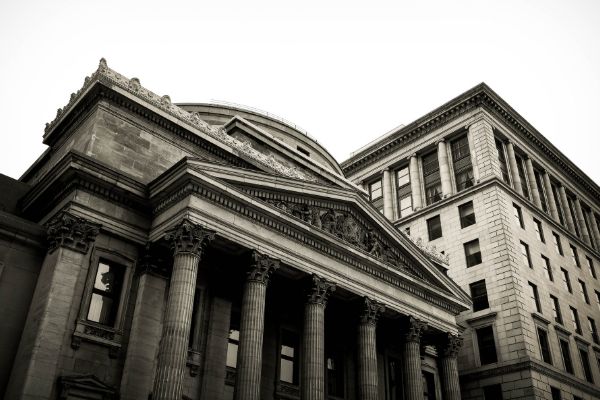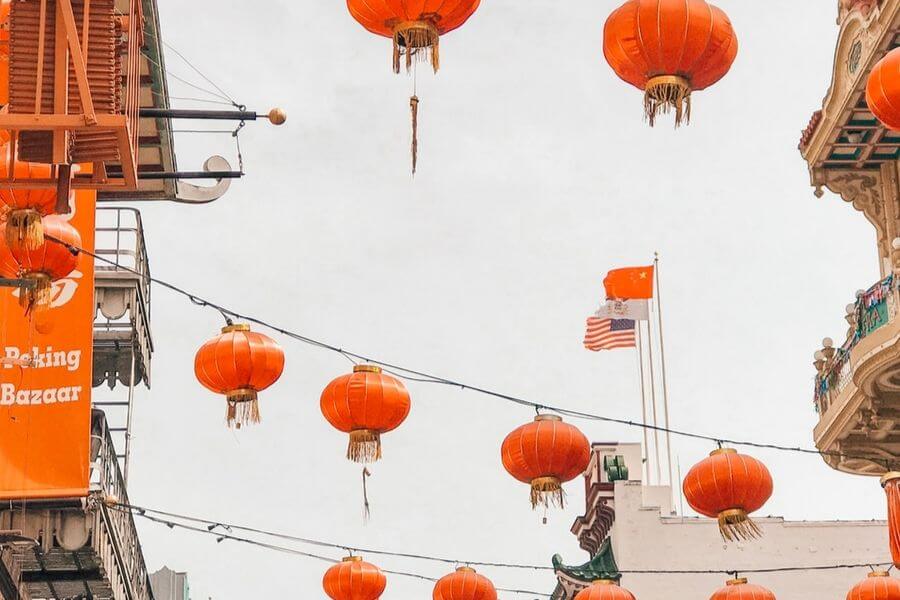
On 30 July 2019, the United States Court of Appeals for the District of Columbia Circuit affirmed the district court’s contempt orders against three Chinese banks for their failure to provide required bank documents. The opinion, filed by Circuit Judge Tatel with certain information redacted, was released on 6 August 2019.[1] According to the news report, the three Chinese banks are Bank of Communications, China Merchants Bank and Shanghai Pudong Development Bank.[2]
I. Background
The origin of the contempt orders can be traced back to a grand jury investigation. According to the uncovered facts, in order to evade America’s economic sanctions, North Korea’s state-run company used a Hong Kong-based company (hereinafter “the Company”) as a front company for U.S. dollar transactions. Between October 2012 and January 2015, more than 10 million dollars were transferred through the U.S. correspondent bank account of three Chinese banks.[3] That’s how the Chinese banks got involved in this case.
In December 2017, the United States Attorney for the District of Columbia served Bank One and Bank two with a grand jury subpoena and Bank Three with an administrative subpoena.[4] The subpoenas sought “all records dated 2012 to 2017 concerning all correspondent banking transactions associated with certain accounts linked to the Company”, intending to investigate “whether the Company or any other entities have committed various federal crimes”.[5]
The Banks refused to comply, claiming the production would violate multiple Chinese laws[6] and urging U.S. government to take evidence through the legal cooperation channels as provided in the mutual legal assistance agreement between China and the United States. The U.S. government, however, held that the legal cooperation mechanism with China was futile because of Chinese judicial authorities’ “slow and spotty history of providing records requested through that process”.[7]
II. The District Court of Columbia Held Three Chinese Banks in Civil Contempt
Both parties refused to give way to each other and the deadlock lasted for one year. In November 2018, the U.S. government filed a motion to the District Court of Columbia to compel the production of documents.
On 18 March 2019, Beryl A. Howell, Chief Judge of the Columbia District Court, granted the U.S. government’s motion to compel discovery. According to the court order, the Chinese banks are ordered to produce bank documents before 28 March 2019. However, none of the banks complied with the subpoena within the given time. On 10 April 2019, the district court held the banks in civil contempt and imposed a $ 50,000 daily fine until the banks are willing to complete production.[8] The banks then filed a notice of appeal.
III. The Court of Appeal Upheld Contempt Orders Against Three Chinese Banks
The court of appeal mainly discussed three issues: First, whether the banks are subjected to the court’s personal jurisdiction; Second, whether the subpoena to Bank Three exceeds the government’s authority provided in the Patriot Act; Third, whether compelling the Chinese Banks to discovery violates the international comity doctrine.
i. Personal jurisdiction
For Bank One and Bank Two, the appeal court held that they have consented to the court’s jurisdiction when they open branches in the United States. U.S. case law shows that the personal jurisdiction can be waived and a party may consent to a court’s personal jurisdiction.[9] In the present case, according to the agreement signed between the banks and Federal Reserve, Bank One and Bank Two agreed to “consented to the jurisdiction of the federal court of the United States...for purpose of any and all...proceedings arising under U.S. Banking Law.”[10] Reading the plain language of the provision, the appeal court held that the current proceeding is exactly an investigation initiated by the U.S. government “arising under the U.S. Banking Law”, specifically the Bank Secrecy Act. Thus, the appeal court concluded that the district court can exercise personal jurisdiction over Bank One and Bank Two due to their consent.
Regarding Bank Three who does not open branches in America, the appeal court concluded Bank Three’s maintenance of correspondence accounts in the U.S. supplied necessary nexus for the exercise of personal jurisdiction. According to U.S. Constitution and case law, two conditions must be satisfied for specific personal jurisdiction: (a)certain minimum contacts with the forum such that (b) the maintenance of the suit does not offend traditional notions of fair play and substantial justice.[11] In this case, Bank Three claimed the “forum” is the state where the court located and argued that its correspondent account was in New York, thus having no contacts with the district court of Columbia. Judge Tatel, after analyzing lawmaker’s intention, defined “the contacts with the forum” as “Bank Three’s contact with the United States as a whole, including its maintenance and use of the correspondent account in New York”.[12] The appeal court did not discuss the second prerequisite because Bank Three “placed all its eggs in the forum identification basket” and did not argued whether its contact with the United States as a whole was sufficient or not. Therefore, the appeal court affirmed the district court’s decision regarding the jurisdiction issue.
ii. Statutory Authority
The appeal court then moved on to review whether the subpoena to Bank Three exceeds the government’s statutory authority. Pursuant to the Patriot Act, both the Attorney General and the Treasury Secretary have the authority to issue a subpoena to “any foreign bank that maintains a correspondent account in the United States and request records related to such correspondent account, including records maintained outside of the United States”.[13] The most disputed issue here comes to the understanding of the term “related to”. Bank Three argued the government’s statutory authority is limited to the records of transactions that “themselves passed through Bank Three’s U.S. correspondence accounts”. The government, however, ask for a broad interpretation, claiming all of the Company’s documents that have a connection with the use of Bank Three’s correspondent account, including “some individual transactions made no use of a U.S. correspondence account”. Based on Supreme Court precedent and Congress’s interpretation, the appeal court finally stood on the government’s side and read the phrase “relating to” expansively. The appeal court further pointed out that the Company operated exclusively as a U.S. dollar clearinghouse for the North Korea company, concluding that “all records pertaining to the Company’s Bank Three account and its correspondent account are ‘related to’ the U.S. correspondent accounts”.[14]
iii. Comity Analysis
The third issue discussed by the appeal court is whether the district court abused its discretion when conducting the comity analysis. Three Chinese Banks insisted that district court’s compelling compliance neglects comity’s spirit of cooperation, especially when China’s Ministry of Justice has pledged to timely review and handle the requests for the assistance sought by the U.S. government under the mutual legal cooperation agreement in criminal matters. The district court concluded that the legal cooperation mechanism is not an effective way to obtain evidence from Chinese authorities, finding “the United States has submitted fifty requests for bank records over the past decade and has received no responsive records to thirty-five”. Based on the facts and statistics given by the district court, the appeal court sees no abuse of discretion in the district court’s decision to compel compliance.
Taken together, the appeal court affirmed the district court’s contempt orders against all three Chinese banks.
IV. Takeaways
There is probably the most famous opening sentence in the first line of Charles Dickens’ A Tale of Two Cities: It was the best of times. It was the worst of times. For Chinese financial institutions, they are going through the best times thanks to the economic globalization. At the same time, however, Chinese banks’ winter is also around the corner.
In recent years, Chinese banks have been frequently ordered to provide bank customers’ document in assistance of U.S. court proceeding. [15]Under such circumstance, Chinese banks are placed in a catch-22: producing bank documents in violation of Chinese law;[16] or facing contempt orders and daily fine for refusing discovery. The three Chinese banks in this case face the same situation.
In the present case, there are two new characteristics that deserved to pay attention to:
First, the case is a criminal case in which the U.S. federal courts are easier to exercise jurisdiction over foreign financial institutions than in civil cases. In civil cases, the Supreme Court of the United States imposes an “at home” limitation to the federal courts if they want to assert jurisdiction over foreign corporations. [17]In criminal cases, however, as mentioned above, if the foreign banks want to open branches in the U.S., they have to sign an agreement with the Federal Reserve to consent to the jurisdiction of the federal court for proceeding arising under U.S. Banking Law. Considering that there are still many criminal cases in the U.S. courts that are related to U.S. government’s economic sanctions towards Iran and North Korea, if suspected companies transfer money through U.S. correspondent account of Chinese banks, more and more Chinese financial institutions will inevitably get involved in similar cases and once again face the catch-22 dilemma.
Second, the U.S. federal district court for the first time denied the first resort to the mutual legal cooperation assistance between China and the U.S. when taking evidence from Chinese banks. In this regard, the U.S. court considers the legal cooperation with Chinese judicial authority as a futile way, even though China’ Ministry of Justice has repeatedly pledged to handle U.S. courts’ request timely. At the same time, Chinese judicial authorities are reluctant to execute U.S. discovery request because the scope of which is too broad and arbitrary.[18] Under such a scenario, Chinese banks, no matter they have branches in the U.S. or not, becomes the biggest victim.
References:
[1] See In Re Sealed Case, No. 19-5068 (D.C. Cir. 2019), available at: https://www.cadc.uscourts.gov/internet/opinions.nsf/6E2FAD8DB7F6B3568525844E004D7A26/$file/19-5068-1800815.pdf.
[2] See US Judge Holds Three Chinese Banks in Contempt for Refusing to Comply With Probes into Violations of North Korea Sanction, available at: https://www.scmp.com/business/banking-finance/article/3015938/us-judge-holds-three-chinese-banks-contempt-refusing, visited on August 20, 2019.
[3] See In re Grand Jury Investigation of Possible Violations of 18 USC. § 1956 and 50 U.S.C. 1705, 381 F. Supp.3d 37, 46 (March 2019).
[4] See [4] See In re Grand Jury Investigation of Possible Violations of 18 USC. § 1956 and 50 U.S.C. 1705, 381 F. Supp.3d 37, 44 (March 2019).
[5] See In Re Sealed Case, No. 19-5068 (D.C. Cir. 2019), p. 6, available at: https://www.cadc.uscourts.gov/internet/opinions.nsf/6E2FAD8DB7F6B3568525844E004D7A26/$file/19-5068-1800815.pdf, visited on August 20, 2019.
[6] For example, Art. 4 of the Law of the People's Republic of China on International Criminal Judicial Assistance provides that “no institution, organization or individual within the territory of the People's Republic of China may provide evidentiary materials and assistance prescribed by this Law to foreign countries”.
[7] See In Re Sealed Case, No. 19-5068 (D.C. Cir. 2019), p. 6, available at: https://www.cadc.uscourts.gov/internet/opinions.nsf/6E2FAD8DB7F6B3568525844E004D7A26/$file/19-5068-1800815.pdf, visited on August 20, 2019.
[8] See In re Grand Jury Investigation of Possible Violations of 18 U.S.C. § 1956 and 50 US.C. § 1705, 2019 WL 2182436 at 7 (April 2019).
[9] See Insurance Corp. of Ireland v. Compagnie Des Bauxites De Guinee, 456 U.S. 694, 703 (1982).
[10] See In Re Sealed Case, No. 19-5068 (D.C. Cir. 2019), p. 10, available at: https://www.cadc.uscourts.gov/internet/opinions.nsf/6E2FAD8DB7F6B3568525844E004D7A26/$file/19-5068-1800815.pdf, visited on August 20, 2019.
[11] Daimler AG v. Bauman, 571 U.S. 117, 126, 134 S.Ct. 746, 187 L.Ed.2d 624 (2014).
[12] See In Re Sealed Case, No. 19-5068 (D.C. Cir. 2019), p. 14, available at: https://www.cadc.uscourts.gov/internet/opinions.nsf/6E2FAD8DB7F6B3568525844E004D7A26/$file/19-5068-1800815.pdf, visited on August 20, 2019.
[13] See 31 U.S.C. § 5318(k)(3)(A)(i).
[14] See In Re Sealed Case, No. 19-5068 (D.C. Cir. 2019), p. 26, available at: https://www.cadc.uscourts.gov/internet/opinions.nsf/6E2FAD8DB7F6B3568525844E004D7A26/$file/19-5068-1800815.pdf, visited on August 20, 2019.
[15] See Gucci AmericaInc. v. Weixing Li, 2011 WL 6156936 (S. D. N. Y 2010); Gucci America Inc. v. Bagsmerchant, 2012 WL 4468192 (S. D. N. Y. 2012); Tiffany (NJ) LLC v. Qi Andrew, 276 F. R. D. 143 (S. D. N. Y. 2011); Tiffany (NJ) LLC v. Forbse, 2012 WL 1918866 (S. D. N. Y. 2012); Tiffany (NJ) LLC v. Dong,2013 WL 4046380 (S. D. N. Y. 2013); Nike Inc. v. Wu, 2018 WL 4907596 (2018 S.D.N.Y).
[16] Except for the Law on International Criminal Judicial Assistance mentioned in footnote 6, Art. 73(3) of China’s Commercial Banks Law also stipulates that “A commercial bank shall assume liability for payment of default interest and other civil liability if the property of depositors or other clients is damaged as a result of the commercial bank's:...(3) illegal inquiries into, freezing, withholding or transfer of the savings deposits of individuals or the deposits of units”.
[17] “A court may assert jurisdiction over a foreign corporation “to hear any and all claims against [it]” only when the corporation's affiliations with the State in which suit is brought are so constant and pervasive “as to render [it] essentially at home in the forum State.” See In Goodyear Dunlop Tires Operations, S.A. v. Brown, 131 S.Ct. 2846, 2851 (2011).
[18] Under China’s declarations to the Hague Evidence Convention, “in accordance with Article 23 of the Convention concerning the Letters of Request issued for the purpose of obtaining pre-trial discovery of documents as known in common law countries, only the request for obtaining discovery of the documents clearly enumerated in the Letters of Request and of direct and close connection with the subject matter of the litigation will be executed”. See Declaration/Reservation/Notification of the Hague Evidence Convention, available at: https://www.hcch.net/en/instruments/conventions/status-table/notifications/?csid=493&disp=resdn, visited on 22 August 2019. Meanwhile, the District Court of Columbia stated that “Over the last decade, the United States has made approximately 50 MLAA requests to China for bank records, only 15 of which have produced any response. Of those 15, most have been incomplete, untimely, or failed to include certification needed for the records’ admissibility in a United States court.” See In re Grand Jury Investigation of Possible Violations of 18 USC. § 1956 and 50 U.S.C. 1705, 381 F. Supp.3d 37, 69 (March 2019).
Contributors: Guiqiang LIU 刘桂强







